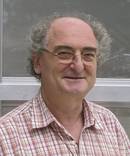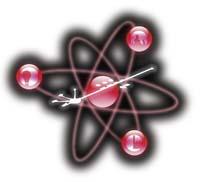What will happen to the ESS-Bilbao candidacy?

ESS-Bilbao hautagaitzaren aholkulari ohia. CSIC
Elektrizitatea eta Elektronika Saila, EHUko Zientzia eta Teknologia Fakultatea

Today there are more doubts than certainties about the European Space Source. On the one hand, the recommendation of the European ministers of science in favor of the headquarters of Lund does not imply a firm or formal commitment to this candidacy. Paradoxically, only the Spanish administration has signed a collaboration agreement with the Swedish candidacy. On the other hand, the economic situation in Europe, and in particular in Sweden, is sufficient to think that the source of neutrons itself is in doubt. To this we must add other factors: The University of Lund is in a difficult financial situation -- it is closing down the institute -- and has launched a project to build another accelerator in the same place.
But the economic factors are not the only ones that question the solidity of the Swedish election. The countries on which the Swedish candidacy is based, especially the Scandinavians, had in their day an important role in the matter of neutrons, but today they hardly contribute to the European facilities that work with neutrons, and their number of users is insignificant with respect to the rest of the countries of continental Europe. In turn, Lund is far from these countries, which greatly hinders the realization of the necessary economic investments for a project of these characteristics.
In this situation of uncertainty, a reasonable strategy for the ESS-Bilbao project would be to bet on the autonomous development of the accelerator area. To build an own plant, a center that provides service to the European Spalation Source (in compliance with the agreement between the Spanish government and the Swedish candidacy) and, above all, a reference center that covers our needs in terms of accelerators.
As a former consultant to the ESS-Bilbao candidacy, I think we have to put an end to the work started with the ion source and bet on the construction of a proton accelerator on the Leioa campus; a multipurpose center, which works in a wider field of research than neutrons, and which is not a mere center dependent on the European Neutron Source. Given the current situation, we cannot wait 10 years to run (or not) this project. We have to take steps to develop this field here and now, and not forget the effort made so far.
A proton accelerator can now be installed on the Leioa campus. From the economic point of view, the project does not exceed the stipulated in the agreement signed by Sweden, and the technical characteristics of the installation also satisfy the agreed. However, the strategic vision changes, because it prioritizes autonomous development and works in a broader scope than that agreed with Sweden.
I am absolutely committed to this vision and, at present, the proton accelerator for Leioa has the approval of the Basque Government and the Spanish Government. In addition, the necessary budget is agreed within the ESS-Bilbao candidacy. Therefore, we have to make a determined bet and work so that within 2-3 years Leioa has a proton accelerator equivalent to the rest of the world. We have people and resources necessary for a proton beam to see the light within a year.
Route of the candidacy
If Lund is currently the main candidate for the European Source of Neutrons, it is because the ESS-Bilbao candidacy has made two main mistakes. The profile of Bilbao's candidacy has been too political, excessive and, unlike other candidates, the project has never had a scientific director as prominent as it should.
In December 2006 the candidacy of Bilbao was launched with a clear advantage. The candidacy arose from the project of construction of a source of neutrons of the region in Bizkaia, a proposal that had a high economic support - about 350 million euros. Therefore, the team of experts who should evaluate this proposal at the international level considered his candidacy for the European Source of Neutrons of great interest. Unfortunately, the second recommendation of the team of experts has never received as much attention as the first. They expressly stressed the need to initiate the immediate construction of an area laboratory -- an indispensable condition for demonstrating the ability to win the candidacy -- but the technical development of the candidacy has always been secondary.
The superiority of the political vision of the project and the low development of 2007 represented an important loss of credibility for the candidacy of Bilbao, which meant the annulment in 2007 of its starting advantage. The executive committee of the candidacy was dissolved between June and December 2007 and, although in 2008 something could be advanced, at no time could the technical project develop properly as proof of the solidity of the scientific-technical proposal of the candidacy of Bilbao.





